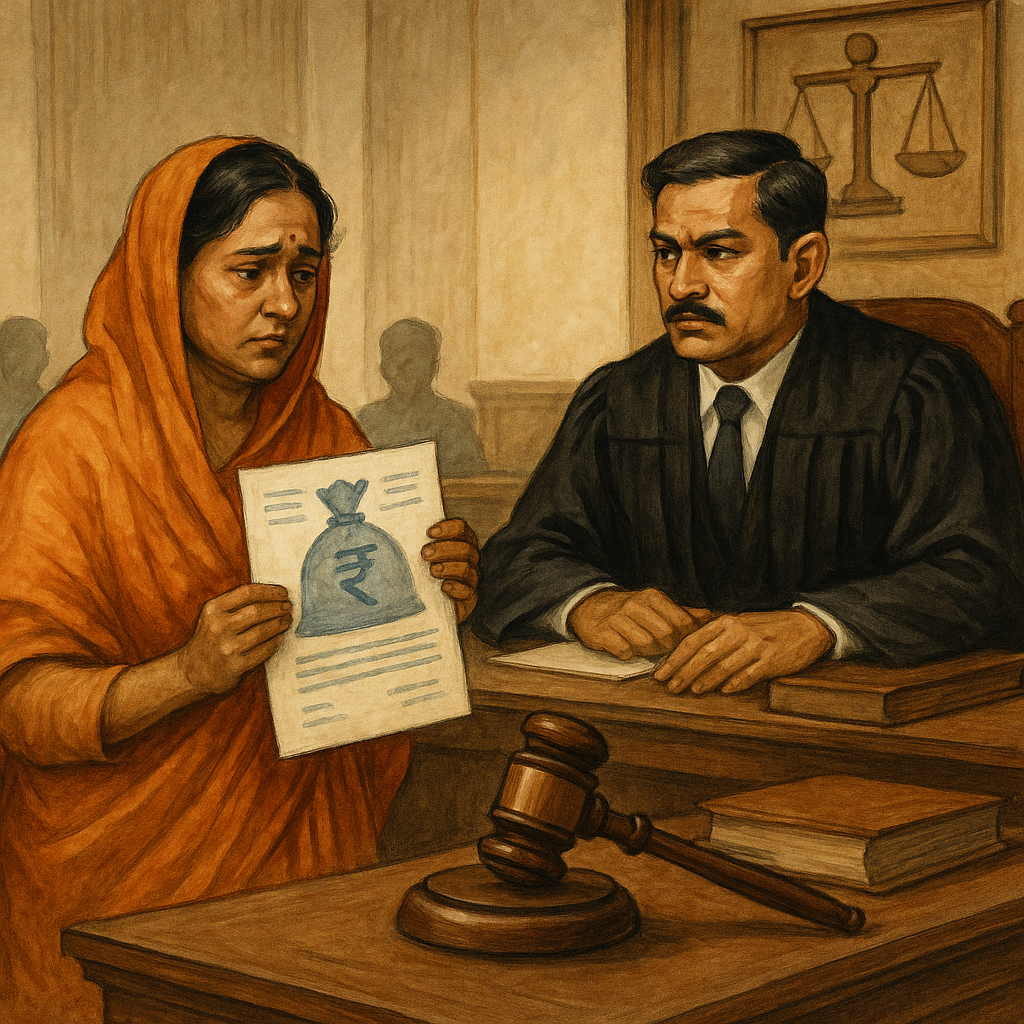Simplified Explanation of the Judgment
In a significant ruling, the Patna High Court has set aside a recovery order issued against a widow who was receiving family pension after the death of her husband, a retired Senior Auditor from the Defence Accounts Department. The Court found that the recovery of alleged excess pension payments, amounting to over Rs. 4.13 lakhs, was unlawful as it violated the applicable pension recovery rules.
The petitioner, a widow, had been receiving a family pension after her husband’s death in 2001. Her husband had retired in 1997 and passed away in 2001. For several years, she was paid her pension without interruption. However, in 2008 and later again in 2018, the State Bank of India (SBI) informed her that she had been overpaid and demanded recovery of the excess amount, citing mistakes in the calculation of pension entitlement during data migration to the Centralized Pension Processing Centre.
The bank claimed that due to clerical errors during a digitization exercise, the petitioner had received an excess pension since 2008. Consequently, SBI initiated recovery proceedings and deducted Rs. 1,11,279 from her pension account. The petitioner challenged this action in the Patna High Court.
The Court emphasized that under Clause 103.2 of the Defence Pension Payment Instructions (2013), no recovery of overpaid pension beyond 12 months of its occurrence can be made without prior approval from the Principal Controller of Defence Accounts (Pensions). Since the alleged overpayments spanned more than ten years and no such approval had been obtained, the recovery action was deemed illegal.
Furthermore, the Court cited the Supreme Court’s rulings in State of Punjab vs. Rafiq Masih and Paras Nath Singh vs. State of Bihar, where it was held that recovery from Class III or IV employees, or retirees, especially without any fault or misrepresentation on their part, would be unfair, harsh, and legally impermissible.
The judgment reinforced that banks and authorities must act with procedural fairness and should not burden innocent pensioners with recoveries arising from their own administrative lapses.
Significance or Implication of the Judgment
This ruling has far-reaching implications for pensioners, particularly widows and retirees receiving family pensions. It offers crucial protection against retrospective deductions made due to institutional errors. Government departments and banks must now strictly comply with procedural safeguards before attempting any recovery, especially for overpayments that occurred long ago. The judgment strengthens the position of vulnerable individuals who rely on pensions for their livelihood, ensuring dignity and legal protection in their old age.
Legal Issue(s) Decided and the Court’s Decision
- Whether recovery of excess family pension can be made without approval from the Principal Controller of Defence Accounts?
- No, recovery without such approval violates Clause 103.2 of Defence Pension Payment Instructions, 2013.
- Whether recovery of overpaid pension spanning over 10 years is legally permissible?
- No, the Court ruled such recovery is impermissible especially when the pensioner was not at fault.
- Whether the bank’s recovery action based on an undated undertaking is valid?
- No, the Court held that the undertaking does not override legal safeguards for pensioners.
Judgments Referred by Parties
- High Court of Punjab & Haryana vs. Jagdev Singh, (2016) 14 SCC 267
- Paras Nath Singh vs. State of Bihar, (2009) 6 SCC 314
Judgments Relied Upon or Cited by Court
- State of Punjab vs. Rafiq Masih, (2015) 4 SCC 334
Case Title
Kalawati Devi vs. The Union of India & Ors.
Case Number
CWJC No. 4050 of 2019
Citation(s)
2020 (1) PLJR 85
Coram and Names of Judges
Hon’ble Mr. Justice Mohit Kumar Shah
Names of Advocates and who they appeared for
- Mr. Jitendra Kumar – For the Petitioner
- Mr. S.D. Sanjay, Addl. Solicitor General – For the Respondents (Union of India)
- Mr. Rajesh Kumar Verma, A.S.G. – For the Respondents
- Mr. Sanjiv Kumar – For the Bank
Link to Judgment
https://patnahighcourt.gov.in/viewjudgment/MTUjNDA1MCMyMDE5IzEjTg==-z84QLoIIhSg=
If you found this explanation helpful and wish to stay informed about how legal developments may affect your rights in Bihar, you may consider following Samvida Law Associates for more updates.









